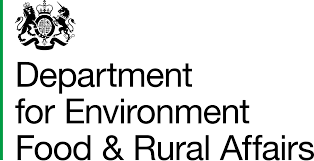PRESS RELEASE : Water companies to be forced to double compensation for failures [December 2024]
The press release issued by the Department for Environment, Food and Rural Affairs on 17 December 2024.
Government acts decisively to force water companies to double the compensation paid to customers and businesses for service failures.
Water customers around the country will benefit from significantly higher payments to compensate them for water company service failures, the Government has confirmed today (17 December 2024).
Following public consultation, new and increased compensation will be compulsory for water companies to pay to customers and businesses in the event of issues like water supply outages, sewer flooding or low water pressure.
Issues like low water pressure could see payments of up to £250, compared to just £25 currently available, and payments for internal flooding from sewers could rise to £2,000 or more, compared to £1,000 under current rules.
Following a supply interruption in South Staffordshire last month as a result of a burst water main, compensation for residents was not compulsory. Under new regulations, this incident could have warranted payment of £150 for households and £300 for businesses.
The disruption experienced by residents in Bramley, Sussex in May after a historic fuel leak from a third-party petrol station led to a ‘Do Not Drink’ notice for 600 properties did not warrant mandatory compensation, though Thames Water offered a £30 voluntary payment. Today’s reforms would trigger a compulsory payment of £220 for households and £440 for businesses.
During a recent water quality incident in Brixham, Devon following an outbreak of cryptosporidium, there was no statutory entitlement to compensation for those affected. Under new rules, customers could be entitled to at least £10 per 24 hours, potentially amounting to more than £500 for incidents over 8 weeks such as that in Brixham.
In recognition of the impacts of these incidents, today’s reforms underscore the government’s commitments to hold water companies to account for poor performance and to stand up for consumers who receive compromised water services.
Secretary of State for Environment, Food and Rural Affairs, Steve Reed, said:
Customers have too often been let down by water companies, with supply cut off, low water pressure and in some cases even contaminated tap water.
We are clear that the public deserve better compensation when things go wrong, so I’m taking action to make sure that happens.
This is another step forward in our plans to reforms the water sector so it serves customers and the environment better.
Payment rates when water service standards are not met have remained unchanged since 2000, meaning reform is long overdue.
When supply interruptions take place, some water companies voluntarily offer compensation for their customers. However, there is no statutory requirement to do so, and compensation rates can vary significantly amongst companies and regions.
The changes will see the list of circumstances that can trigger compensation expand, to include when Boil Notices are issued by water companies when drinking water quality standards drop, or when firms fail to conduct meter readings or installations as promised.
This follows a public consultation which showed overwhelming public support for the changes, with an average of 84% water customers agreeing with the proposals, and 70% of businesses.
Mike Keil, Chief Executive of the Consumer Council for Water (CCW), commented:
The current Guaranteed Standards Scheme is not fit for purpose, so we welcome the swift action the Government has taken to bring about long-overdue improvements.
The increased payment levels when things go wrong, alongside fewer reasons for companies to avoid making payments, means that there are far greater incentives for water companies to get things right first time. The overhaul of these standards marks a step forward in improving consumer protection and repairing fractured trust in the water sector.”
The Guaranteed Standards Scheme (GSS) establishes baseline expectations for customer service in the water sector, including timely restoration of water supply after interruptions, prompt responses to written complaints, and effective management of sewer flooding risks.
Strengthened protection and compensation for households and businesses was announced as part of the government’s initial steps towards ending the crisis in the water sector. In addition, the Water (Special Measures) Bill, which sees its second reading in the House of Commons this week, will:
- Strengthen regulation to ensure water bosses face personal criminal liability for lawbreaking.
- Give the water regulator new powers to ban the payment of bonuses if environmental standards are not met.
- Introduce new powers to bring automatic and severe fines.
- Require water companies to install real-time monitors at every sewage outlet with data independently scrutinised by the water regulators.
- Give Ofwat the power to set rules to increase customer representation in decision-making to hold companies to account.
Furthermore, the government has launched the largest review of sector since privatisation, creating an Independent Commission to examine the water sector and its regulation.
The Commission forms the next stage in the Government’s long-term approach to ensuring we have a sufficiently robust and stable regulatory framework to attract the investment needed to clean up our waterways, speed up infrastructure delivery and restore public confidence in the sector.


